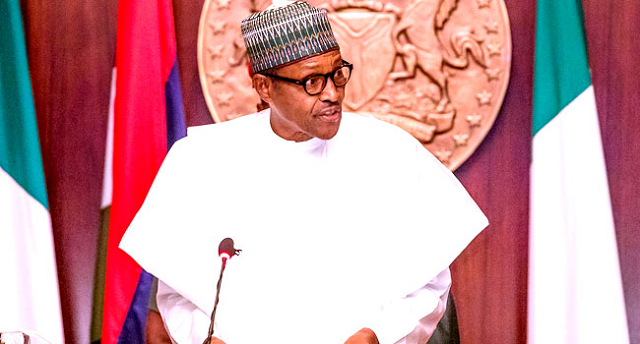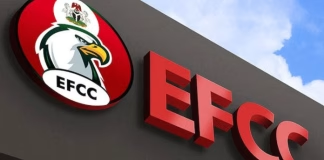- Asks MDAs to digitalise operations
President Muhammadu Buhari has urged Nigerians to be mindful that their SIM cards are properly registered as the use of unregistered and improperly registered SIM cards by terrorists is a threat to national security.
The President made this appeal yesterday at the opening ceremony of the e-NIGERIA 2019 Conference on the Nigerian Digital Economy held at the International Conference Centre (ICC), Abuja.
In a statement issued by the Special Adviser to the President on Media and Publicity, Femi Adesina, the President said the call was expedient given the large number of Nigerians whose SIM cards have been blocked because of uncaptured biometrics.
“Of course, as we celebrate the successes and explore the opportunities in this sector, we must remain mindful of its threats. We all know how the use of unregistered and improperly registered SIM cards by terrorists is a key national security threat. Today, I am informed that over 9.2 million SIM cards have either been normalized, blocked or deactivated in less than 40 days due to improper registration. We encourage all Nigerians to ensure that their phones are properly registered. As a Government, our priority is to protect the lives and properties of all Nigerians,” Buhari said.
He also directed Ministries, Departments and Agencies (MDAs) to switch their operations to digital platforms in compliance with the ICT master plan that is currently implemented by the government.
He said the transition will enhance efficiency and effectiveness in service delivery, and promote more inter-agency synergy.
According to Buhari, the transition to digital economy was no longer optional for the MDAs, but “an absolute necessity,’’ following the launch of the e-government master plan which will drive and guide the process.
He noted that a directive in 2018 that all government-funded ICT projects must be reviewed and cleared by National Information Technology Development Agency (NITDA) saved the country over N16.8 billion.
“Our recent introduction of the Nigerian E-government Masterplan will further consolidate our successes to date and increase interoperability among the different Ministries, Departments and Agencies of government.
“A key requirement of the e-government Master plan is for all government institutions to create a Digital Transformation Technical Working Group that will work with the Ministry of Communications and Digital Economy to ensure seamless and coordinated implementation of projects, programs and policies.
“Furthermore, the Nigerian e-Government Interoperability Framework, the Enterprise Architecture and the Nigeria Data Protection Regulation are in place and all Ministries, Departments and Agencies are expected to comply with these policies,’’ he said.
He also noted that the digitization of key operations in public service such as the use of the Bank Verification Number (BVN), Treasury Single Account (TSA) and the Integrated Payroll and Personnel Information System (IPPIS) has enabled the government to save cost and fight corruption.
The President said the Federal Ministry of Communications and Digital Economy will develop training and sensitization programs that will be rolled out across all key MDAs with immediate effect to ensure seamless implementation of the master plan.
President Buhari pointed out that the push for more job creation and diversification of the economy received a boost in the second quota with the ICT sector contributing 13.85 percent to the Gross Domestic Product (GDP), quoting figures from the National Bureau of Statistics for 2019.
“This clearly shows the importance and potential of the ICT sector to our job creation and economic diversification agenda.
“Already, Nigerian ICT startups are leaving their mark on the global stage. For example, at the Gulf Information Technology Exhibition (GITEX), a Nigerian Artificial Intelligence solution provider, Chiniki Guards, took first place, beating 750 contestants from 73 countries. We shall continue to encourage and support such digital entrepreneurs to develop innovative solutions for local and global challenges,” he added.
The President said the Federal Ministry of Communications was re-designated Federal Ministry of Communications and Digital Economy to refocus on the emerging value of digitalization all over the world with a mandate to develop and implement a harmonized and well-coordinated digital economy policy and strategy for Nigeria.
Source: THISDAY














